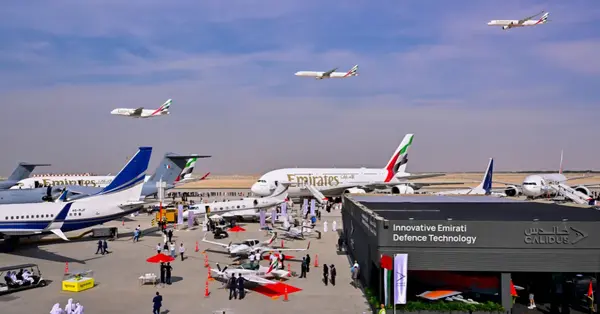You are viewing 1 of your 2 free articles
Air Arabia Abu Dhabi to boost capacity 40% after Wizz exit
UAE capital’s low-cost carrier to grow fleet by four in 2025
Air Arabia Abu Dhabi is preparing for its biggest operational expansion since launching in 2020, with plans for a 40% increase in capacity in 2025 as the airline capitalises on shifting market conditions.
The move comes as budget rival Wizz Air readies its 1 September exit from Abu Dhabi and the wider region after five years, a development that has sent ripples through the competitive low-cost sector and raised the stakes for airlines operating in the UAE capital.
With the addition of two new Airbus A320s this summer, and two more planes scheduled to arrive by year’s end, Air Arabia Abu Dhabi is on track to operate 14 aircraft in service by December 2025.
Group CEO Adel Al Ali noted the expansion is both a response to market forces and a deliberate effort to foster Abu Dhabi’s rising connectivity ambitions.
“The addition of new aircraft and our strategic fleet expansion reflect our ongoing commitment to enhancing operational efficiency and expanding our network reach. This growth supports the rising demand for air travel to and from Abu Dhabi,” he said in a statement.
RELATED:
Wizz Air to close Abu Dhabi operations after five years
7 new destinations join Etihad’s fast-growing network
Download the 2025 Connecting Travel Insight Report
Air Arabia Abu Dhabi’s current roster includes more than 30 direct destinations spanning the Middle East, Africa, Central Asia, the Indian Subcontinent and Eastern Europe, with recently launched routes including to Yerevan, Almaty and Sialkot.
Wizz Air’s recent decision to pull flights from Abu Dhabi — impacting 29 routes across the Middle East, Central Asia, Africa, and Europe — creates immediate questions about the future of budget travel options for UAE-based passengers.
Some analysts have been quick to suggest that Wizz Air’s retreat presents a rare opening for rivals, particularly Air Arabia Abu Dhabi to expand into markets suddenly underserved. However, aviation insiders caution that such a transition is not straightforward.
In an interview with The National, Etihad CEO Antonoaldo Neves, who also chairs Air Arabia Abu Dhabi, explained that “these slots are different in timing and structure; it doesn’t work as a simple transfer. Any decision on taking over Wizz Air’s routes will follow a strategic assessment rather than reactive measures”.
Reacting quickly to the shifting landscape, Abu Dhabi-based Etihad Airways has unveiled plans to add seven new destinations to its network through early 2026, with a focus on Europe, the Caucasus and Central Asia.
Of these new services, five directly overlap with routes currently served by Wizz Air – Almaty, Yerevan, Bucharest, Baku and Tashkent.
For more information, visit www.airarabia.com

















